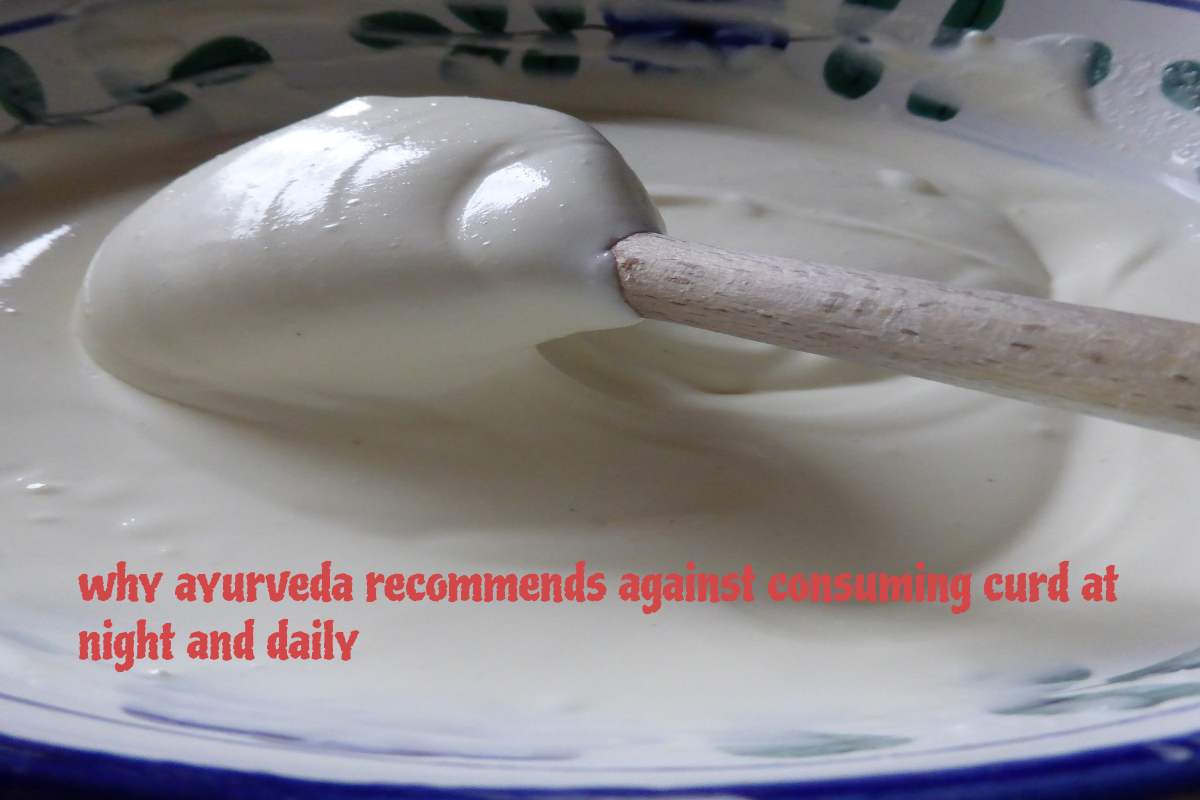Ayurveda Recommends Against Consuming Curd
“If you want to have curd, have it occasionally, during the afternoon and in moderation,” wrote Dr Dixa Bhavsar Savaliya, along with some interesting Ayurvedic facts about curd.
Ayurveda warns against heating curd and having it with meat and fish.
Table of Contents
Learn more about Interesting Facts about Consuming Curd at Night and Night, as per Ayurveda
Now that summer time is knocking on our doorways; it is important to regulate one’s diet as in line with the seasonal change. For that, you do not always need to do a grocery haul or absolutely alternate what your pantry and fridge appear like. However, small weight loss plan modifications pass an extended manner in supporting the frame address the converting temperature and humidity degrees.
Curd or the standard dahi, a staple in most Indian households, has numerous fitness blessings and is first rate for topical software on skin and hair. Meanwhile, Curd allows hydrate the frame, strengthens immunity, builds stronger bones, helps in improving the skin, and is likewise a should-have if you are on a weight reduction adventure or truly keeping your goal weight.
Ayurveda, too, highly approves of dahi, but it also warns about how much curd is good for the body and when and how you should have it. Ayurveda specialist Dr Dixa Bhavsar Savaliya recently shared a post on her Instagram elaborating on how curd is looked at through the ‘Ayurvedic lens’.
She elucidated in the caption that “curd is sour in taste, hot in nature, is heavy to digest (takes a longer period to undergo digestion).” Doctors also noted that curd is good for weight gain as it increases fat, improves strength, and improves digestive power.
She also shared the following “interesting facts about curd” while warning against curd every day and during the afternoons.
Why Ayurveda Recommends against Consuming Curd at Night and Daily
*Curd should not be heated because it loses its properties due to heating.
*It is best to avoid curd in people with obesity, Kapha disorders, bleeding disorders, and inflammatory conditions.
*Curd should never consume at night.
*Curd should not be consumed daily. The only variation consumed regularly is churned buttermilk that has added spices such as rock salt, black pepper and cumin.
*Do not mix your curd with fruits as it is a channel blocker incompatible food. In addition, long-time consumption would trigger metabolic issues and allergies.
*Curd is incompatible with meat and fish. Any combination of curd cooked along with meats such as chicken, mutton, or fish will produce toxins in the body.
She concludes by stating that “if you want to have curd, have it occasionally, during the afternoon and in moderation.”
Why Ayurveda highly Recommends the Consumption of Buttermilk
With winter gradually receding and summer almost knocking on our doors, it’s time to indulge in Healthy beverages. It will provide relief during the hot months and help with your health. What could be better than a glass of wine? Buttermilk wheat should you do with your meals?
Buttermilk is a scrumptious, healthful drink that can deal with many diseases. An ayurvedic professional said, “Ayurveda uses buttermilk each to hold fitness and to deal with diseases.”
*Is clean to digest, has an astringent and bitter taste, and is warm.
*Improves digestion
*In Ayurvedic treatment, it helps deal with irritation, digestive issues and gastrointestinal issues, loss of appetite, spleen troubles, and anaemia.
*Is highly beneficial in Disorders resulting from an imbalance
Here’s a quick and easy Recipe for Buttermilk
Ingredients
*¼ cup – Curd
*1 cup – Water
*Salt, as per taste
*½ teaspoon – Roasted cumin powder
*Mint leaves
*Coriander leaves
*Chopped ginger/ dry ginger powder (optional)
Method
Take ¼ cup curd in a vessel and add a cup of water.
Add salt-roasted cumin powder and mix well with the help of a hand blender or a churner.
And Garnish it by adding mint leaves, coriander leaves, and curry leaves.
Note
The best time for buttermilk to consume is with lunch.


